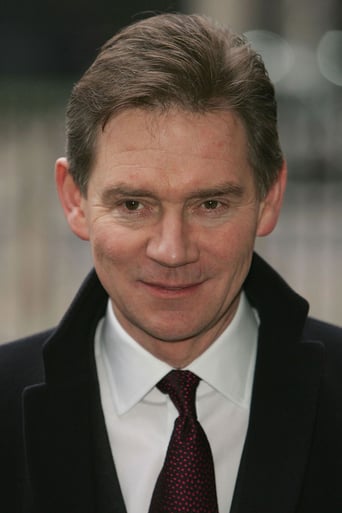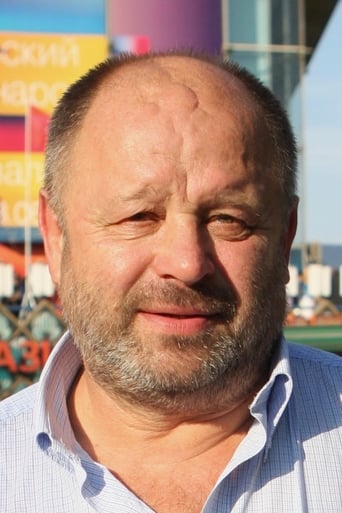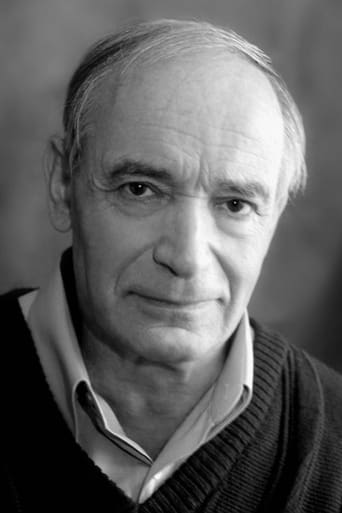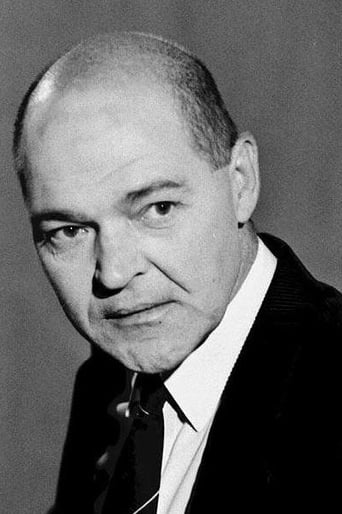Ameriatch
One of the best films i have seen
Supelice
Dreadfully Boring
Nayan Gough
A great movie, one of the best of this year. There was a bit of confusion at one point in the plot, but nothing serious.
Staci Frederick
Blistering performances.
Boris_G
I only discovered this film through becoming fascinated with the music of Leonid Desyatnikov (who also scored 'Prisoners of the Mountains'), and being intrigued by the fact it stars and was produced by Anthony Andrews (of Brideshead Revisited fame). I first tracked down a Danish VHS copy, which inevitably was subtitled in Danish throughout; unfortunately the film, though some of it is in English, is mostly in Russian. I got a fair impression from the Danish version, though, realising that it was excellently filmed and well acted, and the music extremely effective and - in a quite unconventional (for film music) way - highly touching, especially when following the fortunes of the young but very feisty Lilka.The story, on one level, is about the appalling fate of an English archaeologist, Andrew (aka Andrei) Miller, who is mistaken for an American spy by Stalin's secret police, captured and tortured. When they realise their mistake, they try to conceal it by having Miller sent off to a gulag in Siberia. The grim conditions and the cruelty, not least from fellow prisoners, is believably portrayed. But, like a small oasis, there is kindness in the form of the young girl Lilka, and the female doctor in the camp, Anna, who originally came there to follow her husband when he was sentenced for some unspecified political deviancy.I am loathe to give a 'spoiler' here, but what I'm going to write in this paragraph may give some of the plot away, so be warned. The Danish version of the film I saw had a suitably downbeat ending. This is largely mitigated in the English version I eventually traced (a second-hand VHS tape) which - unlike the Danish version - has an intrusive voice-over by Andrew Miller at the start whose need is only clear when the voice-over appears at the very end of the film to effectively reassure the audience that he survives to tell the tale at the end 'to ensure that this does not happen again' - a fatuous statement and one which strongly jars with the thrust of the film. I assume this voice-over was put in after some negative previews (studios seem very nervous of audiences' reactions to films which end on a 'downer'). But even with this, the film still comes across most powerfully, and with the English subtitles I was better able to appreciate the initially far from amiable relationship between Lilka and Anna. This is definitely a film worth hunting for, and I very much hope it will one day see the light on a commercial DVD release. The only reason I hesitate to give it absolute top marks is the slight hint of staginess in the final scenes of the film (though this possibly makes sense if one accepts that it reflects Andrew/Andrei's loosening grip on reality). END OF POTENTIAL SPOILERAltogether an excellent film which deserves far wider exposure.
BAS/NL
Hard but realistic movie about an English researcher who goes innocent to the prison camps during Stalin. Professionally made on location in Russia, good acting, and made on a grand scale. Shows how horrible and idiotic the regime under Stalin was. Out of a 10 point rating : 8
wacd
The film is about British archaeologist, who's arrested by Stalin's secret police. It shows the mechanisms of Gulags (Russian concentration camps) and the impression from it was really authentic and awful. It was a nightmare! But there was also an unbelievable love story... The direction was brilliant, actors were brilliant and the film had a some poetry deep inside, the light of humanity, with which a man can resist the bad and harsh power. You won't believe the story if you don't know something about era of Stalinism and communism.
Vlad-38
I am a Russian-American journalist who lived and worked in Moscow during the early 1990s. I happened to catch "Lost in Siberia" when it came out. As someone who specializes in the political purges of the Stalin era and wrote a PBS documentary film script on the subject, I was deeply impressed by the historical accuracy of the film.




